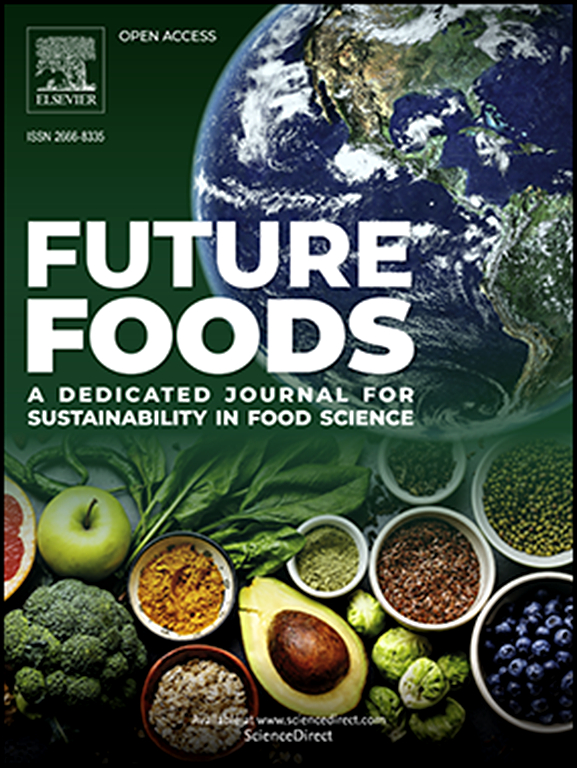The effects of information and naming restriction on South African consumer preferences for farm-raised meat and meat alternatives
IF 8.2
Q1 FOOD SCIENCE & TECHNOLOGY
引用次数: 0
Abstract
High meat consumption in South Africa is driven by population growth, increased income, and urbanization. However, high meat production raises environmental and societal concerns, highlighting the need to shift toward more sustainable protein sources to reduce these impacts. This study examines consumer preferences for plant-based, insect-based, and cultured meat as alternatives, alongside the effects of environmental and health information and naming restrictions on these preferences. A food choice experiment was administered on 1013 urban South African food shoppers to assess preferences for three alternative burger patties relative to farm-raised beef patties. Respondents were randomly assigned to treatments varying by health, environmental, and product naming information. Results indicate that farm-raised beef captures approximately 96 % of the market share within our sample of urban food shoppers. Naming restrictions do not significantly affect beef demand but increase the market share for plant-based and cultured alternatives. Health information leads to slightly higher preferences for plant-based options than environmental information. Preference for insect-based alternatives remains low, likely due to an aversion to insects. These findings enhance understanding of consumer preferences for alternative meat products and naming restrictions, informing policies aimed at reducing the environmental and societal impacts of livestock production in South Africa.
信息和命名限制对南非消费者对农场饲养肉类和肉类替代品偏好的影响
南非的高肉类消费是由人口增长、收入增加和城市化推动的。然而,高肉类产量引起了环境和社会问题,突出了转向更可持续的蛋白质来源以减少这些影响的必要性。本研究考察了消费者对植物肉、昆虫肉和人造肉作为替代品的偏好,以及环境和健康信息以及命名限制对这些偏好的影响。研究人员对1013名南非城市食品购买者进行了一项食物选择实验,以评估他们对三种汉堡肉饼和农场饲养的牛肉饼的偏好。受访者被随机分配到不同的健康、环境和产品命名信息的治疗。结果表明,在我们的城市食品购物者样本中,农场饲养的牛肉占据了大约96%的市场份额。命名限制不会显著影响牛肉需求,但会增加植物性和人工养殖替代品的市场份额。与环境信息相比,健康信息对植物性食品的偏好略高。对昆虫替代品的偏好仍然很低,可能是由于对昆虫的厌恶。这些发现有助于了解消费者对替代肉类产品的偏好和命名限制,为旨在减少南非畜牧业生产对环境和社会影响的政策提供信息。
本文章由计算机程序翻译,如有差异,请以英文原文为准。
求助全文
约1分钟内获得全文
求助全文
来源期刊

Future Foods
Agricultural and Biological Sciences-Food Science
CiteScore
8.60
自引率
0.00%
发文量
97
审稿时长
15 weeks
期刊介绍:
Future Foods is a specialized journal that is dedicated to tackling the challenges posed by climate change and the need for sustainability in the realm of food production. The journal recognizes the imperative to transform current food manufacturing and consumption practices to meet the dietary needs of a burgeoning global population while simultaneously curbing environmental degradation.
The mission of Future Foods is to disseminate research that aligns with the goal of fostering the development of innovative technologies and alternative food sources to establish more sustainable food systems. The journal is committed to publishing high-quality, peer-reviewed articles that contribute to the advancement of sustainable food practices.
Abstracting and indexing:
Scopus
Directory of Open Access Journals (DOAJ)
Emerging Sources Citation Index (ESCI)
SCImago Journal Rank (SJR)
SNIP
 求助内容:
求助内容: 应助结果提醒方式:
应助结果提醒方式:


